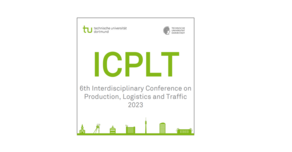RetailSim game - traffic simulation of new retail concepts
- Current Projects
- Transport Modelling and Process Planning
Background
Students experience the shifting consumer trends and their negative impacts on traffic in their daily lives and are thus directly affected by them. The project aims to teach students about measures to equalize traffic flow in a didactic manner. To this end, a serious game approach is used, emphasizing the implementation of (temporary) loading and delivery zones. This game-based learning approach enhances teaching by virtually modeling real-life contexts, presenting various perspectives, and enabling testing solutions without the risk of costly errors.
Methodical Approach
A requirements analysis is initially conducted to define the target groups and learning objectives during the project. Care is taken to ensure that the objectives are customized to the needs and levels of the learners. This section also contains a risk analysis to identify potential delays. Based on the requirements analysis, the game concept is then developed in a game design document. This document is the foundation for developing the simulation model in the next step. The game is subsequently integrated into the teaching program. Once the game has been implemented in teaching, it is evaluated, and its optimization potential is identified.
Results
The project's aim is to increase student awareness of the connections between new retail concepts and their impact on urban traffic, while simultaneously teaching measures to equalize the flow of traffic. A playful approach promotes individual learning and boosts motivation to engage with the content topic. The findings from the project will be incorporated into the development of future courses.
Funding and partners






